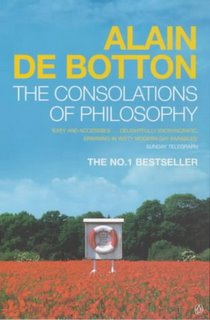
I'm personally not getting all the information I want on the Nuclear energy issue, you probably aren't either, so I'm going to save you from too much googling and try and compile some relevant data here.
The chart shown is from the report Uranium 2003: Resources, Production and Demand, updated 2005 produced by the Nuclear Energy Agency (NEA) (a specialised agency within the Organisation for Economic Co-operation and Development (OECD)) .
So this is where the uranium comes from. I guess that the UK government feels that nuclear sourced energy is more secure than gas secured energy, because we can depend on Australia and Canada better than we can depend on Russia. This is what is indicated on the Nuclear Industry Association sponsored Energy Choices website: "there are many potential source nations, several of which have long histories of political stability (for example Canada and Australia). "( I think "many" might be pushing it, the OED defines many as being a "great (indefinite) number of"). Elsewhere the website tells us "Although uranium for nuclear energy has to be imported, there are no supply problems relating to price instability or countries of origin." (It doesn't back this up with why it thinks this are dependable statements for the future though - why not watch the price "stability" yourself at the UX Consulting site (The price of uranium has quadrupled since mid-2003) ).
So how long will this uranium last? The Uranium Information Centre Ltd (an organisation funded by companies involved in uranium exploration, mining and export in Australia) in its 2003 report Nuclear electricity states that "The world's power reactors, with combined capacity of 350 GWe, require some 75,000 tonnes of uranium oxide concentrate from mines (or stockpiles) each year. "
3,622,000 tonnes supply divided by 75,000 tonnes annual usage equals 48 years (and a few months) worth of uranium. Or based on the fact that these reports were written in 2003 - global uranium will be completely depleted by 2051. The poisonous waste produced in this period will then remain radioactive for 1,000 to 10,000 years (on the Energy Sources website its states that "Radioactive decay of spent fuel is very marked in the first 1,000 years and before about 10,000 years the fuel's radioactivity can have reduced to the same level as the original ore which was mined to produce the fuel in the first place"). In other words, if we'd used up our hundred years worth of uranium around 8,000 BC, we could stop worrying about the radioactive waste about now.
Of course this 48 years figure is based on two assumptions:
1) that we wont increase our known recoverable sources of uranium.
2) that we wont increase our demand for uranium.
So let's look at these assumptions:
1) Our friends at the Uranium Information Centre have some information about this on their FAQ page:
"But aren't world uranium resources too limited to sustain a big expansion of nuclear power?
No, while known and quantified resources are only about 50 times annual use, there is every indication that ongoing mineral exploration activities will steadily increase known resources, as they have in the past with all metal minerals."
I mean its not very detailed information, but perhaps it makes you feel better.
The World Nuclear Association (organisation "representing the technology, people and organisations of the global nuclear energy industry") has some more comforting news for us:
"It is now clear that uranium is not scarce and it is known that it averages almost two parts per million of the Earth's crust. There are substantial resources that are not yet fully proven. These so-called speculative resources are likely to be of the order of 10 million tonnes, about three times the known reserves. While prices remain low, there is no incentive for exploration activities to identify new deposits. Experience with other commodities has shown that increased demand has led to increased prices, and a subsequent increase in exploration and discovery."
Personally I'd be looking for some harder evidence that these "speculative resources" exist, and that it would ever be economically viable to extract them - but perhaps this is enough for governments to make their energy decisions on...
Not everybody is convinced though. Two independent experts, Jan Willem Storm van Leeuwen and Philip Bartlett Smith have a different view, reported recently in The Times and available in its fully researched form in their document Nuclear Power: the Energy Balance (August 2005). The Times report, summarises
"They say that at the present rate of use, worldwide supplies of rich uranium ore will soon become exhausted, perhaps within the next decade. Nuclear power stations of the future will have to reply on second-grade ore, which requires huge amounts of conventional energy to refine it. For each tonne of poor-quality uranium, some 5,000 tonnes of granite that contains it will have to be mined, milled and then disposed of. This could rise to 10,000 tonnes if the quality deteriorates further. At some point, and it could happen soon, the nuclear industry will be emitting as much carbon dioxide from mining and treating its ore as it saves from the “clean” power it produces thanks to nuclear fission."
2) Well we will obviously increase our demand if the world chooses nuclear as its 'way out' of its energy impasse. A recent report in the Guardian "Price of Uranium Soars" lays it out cold:
"Britain's planned nuclear programme could be hampered by a lack of fuel as the price of uranium soars on world markets. This reflects fears of future shortages after a resurgence of interest in nuclear power - not just in Britain but also in Finland, France and the US, where new plants are going ahead. China wants to build as many as 30 plants by 2020, helping to push the price of uranium oxide from a low of $6.70 a pound at the start of 2001 to $41.50 yesterday."
I can't find a source that suggests that global demand for Uranium will fall.
This all seems to add up to me to mean that the amount of economically recoverable Uranium will not significantly increase, while the demand for nuclear fuels will increase, alongside the demand for all other fuels. So if we globally choose the nuclear option, our fuel supply will run out before we're halfway through the century - and the point of 'Peak Uranium' will come much sooner. For more details check out David Flemings article in Prospect magazine, and the Nuclear Facts in New Internationalist magazine. If these sources are all a bit left wing wishy washy liberal for you, why not check out the International Atomic Energy Agency's report Analysis of Uranium Supply to 2050. I tell you now, it's not an easy read - but turn to p.66 and look at Table XLVII, where it gives information on the "First Year of deficit compared with market based production requirement"(i.e. when demand exceeds supply) for highly enriched Uranium. This seems to put Peak Uranium at between 2034 and 2036.
I've left some facts out and you can go research these if you are interested. We don't get all our daily usage of Uranium from mines, we get some of it, according to the UIC FAQs "from Russian weapons stockpiles - recycled warheads, and in fact one tenth of all US electricity is from that source." Apparently you can also build nuclear reactors that use Thorium instead of Uranium, and we've got plenty of Thorium - but there are no reactors currently built or planned to be built that use Thorium.
















